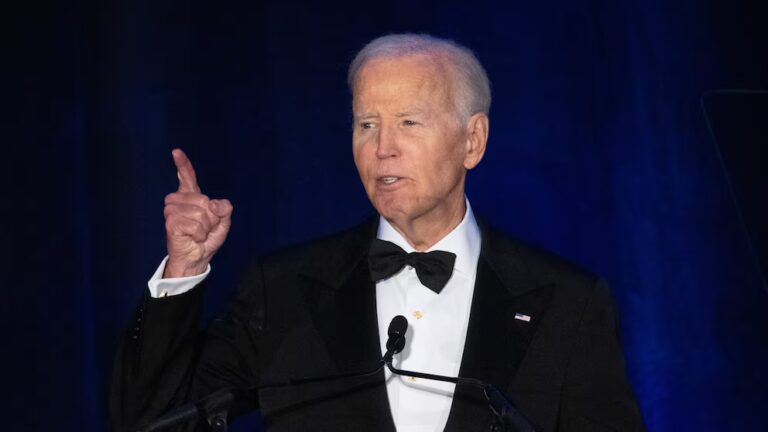
Pennsylvania’s all-male congressional delegation will likely soon be no more: After Tuesday’s Pennsylvania primary elections, multiple women are likely to win their House races in November. The state’s recent redistricting has made its congressional map fairer and, in turn, leveled the playing field for women, who are likelier to run as Democrats.
Three Democratic women won their primaries in districts that Hillary Clinton won by big margins — and a fourth woman is running in a district Clinton won by 1 point for an open seat in a year that’s shaping up to be favorable to Democrats. But that’s not all: Three more women won in districts that Donald Trump won, but given that Democrats captured a seat earlier this year that Trump won by 20 points, things could look very good for women’s representation in the Pennsylvania delegation next year.
Who are the women running in Pennsylvania?
State House member Madeleine Dean won in Pennsylvania’s new Fourth Congressional District in Montgomery County and will face Republican Dan David, who ran uncontested in his primary, in November. The seat is considered a safe one for Democrats, as Hillary Clinton would have carried it by about 20 points over Trump in 2016. During the campaign, Dean criticized Pennsylvania’s all-male delegation. “No wonder Congress is a mess,” she said in a campaign ad.
The Fifth District, where lawyer and school board member Mary Gay Scanlon is running, is even safer; Clinton would have won the district by 28 points in 2016. Scanlon will run against Pearl Kim, the only Republican woman running for a House seat in Pennsylvania (compared to 23 Democrats), who ran for the GOP’s nomination uncontested. The seat was previously held by Republican Rep. Patrick Meehan, who resigned last month after it was revealed he used taxpayer money to settle a sexual harassment case with a former female staffer.
Pennsylvania’s redistricting has also paved the way for Chrissy Houlahan, a former Air Force engineer and COO of a footwear and clothing company, in Pennsylvania’s new Sixth District, which Clinton would have won by about 10 points. Both Houlahan and her Republican opponent, Greg McCauley, ran uncontested in their respective primaries on Tuesday. They’re running to replace Republican Rep. Ryan Costello, who got so upset after the redistricting reshaped his district that he quit the race entirely.
And in the Seventh District, attorney Susan Wild faces a tougher but not impossible contest. Clinton would have won the district by 1 point, but there’s also no incumbent for Wild to run against. Wild, who is a law partner at the firm Gross McGinley and Allentown’s city solicitor, defeated Trump-sympathetic District Attorney John Morganelli and the Bernie Sanders-backed Greg Edwards. She’ll face Marty Nothstein in November.
“Susan Wild is part of the wave,” Morganelli said in his concession speech on Tuesday. “The women are out there. And I understand that. I get that. We need more female representation in Congress and the state legislature.”
Jess King won her uncontested primary in Pennsylvania’s 11th District and will face incumbent Rep. Lloyd Smucker in the fall. Bibiana Boerio won in the 14th District and will run against Guy Reschenthaler, and Susan Boser won in the 15th District and will run against incumbent Rep. Glenn Thompson.
The race between Marc Friedenberg and Judy Herschel in Pennsylvania’s 12th District Democratic primary still has not been called.
Democrats want to retake the House in 2018, and women and Pennsylvania are both parts of the path there
Energized by Trump’s election to the White House and the historic Women’s March after his inauguration, women are running for office in 2018 in record numbers. According to an analysis from the Associated Press in April, at least 309 women — Republicans and Democrats — filed candidacy papers to run for the House of Representatives this year, eclipsing the previous record of 298 set in 2012. And they’re winning: More than two-thirds of female House candidates won their races in last week’s primaries in Ohio, Indiana, North Carolina, and West Virginia.
In Pennsylvania, 24 women were running in House primary races on Tuesday, 23 of them Democrats. Currently, all of Pennsylvania’s 18 members of Congress and both of its senators are men.
Democrats need to flip 23 seats in November to retake the House, and Pennsylvania and women will likely play a major role in that. Energized by Conor Lamb’s victory in a March House special election, progressives are optimistic. And a landmark gerrymandering lawsuit that resulted in a redrawing of the state’s congressional map has changed the lay of the land for Democrats, the party women are likelier to represent.
“It’s a huge prime opportunity for Democrats. If it’s a really incredible year for them, you could swing six seats potentially,” Nick Field, who writes about state politics for WHYY in Philadelphia and PennLive, told Vox’s Dylan Scott in March. “If they swing six seats in Pennsylvania, you’re one-quarter of the way there in one state. I think it’s going to be a huge part of the Democrats’ midterm plan.”
But Republicans aren’t giving up easily. A spokesperson for the National Republican Congressional Committee told the New York Times on Tuesday that the committee has reserved $7.8 million in television advertising for the fall in the Philadelphia market. It will focus on two races, one of which is Wild’s.
Sourse: vox.com






